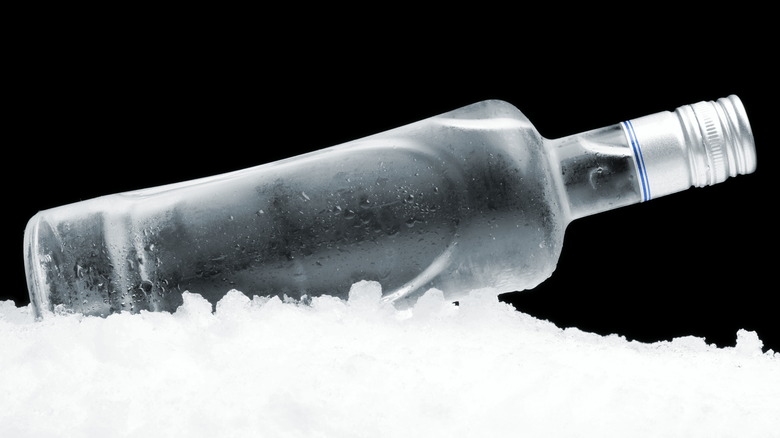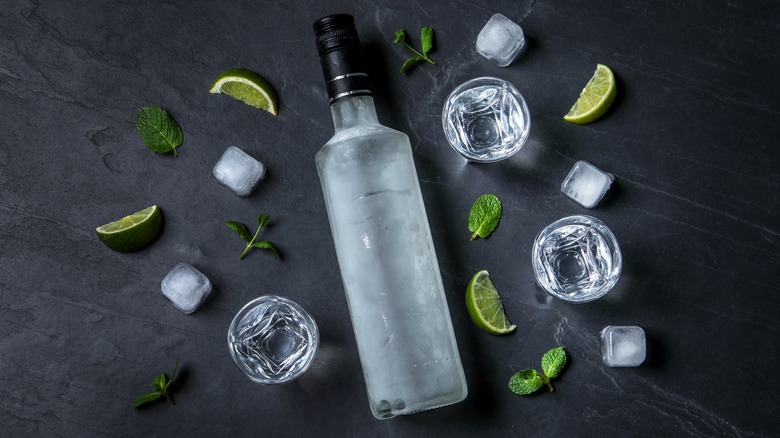The Only Time You Should Put Vodka In The Freezer, According To An Expert
You may have heard that you should never store vodka in the freezer because its low freezing point will impact the taste and viscosity of the drink. However, one expert's advice may make you revise that rule to read "almost never" instead, as they presented one important exception. Molly Horn is the manager of cocktail strategy at Total Wine & More, so it's fair to say they know their tipple. Mashed asked Horn if vodka should ever be stored in the freezer, and they said, "If you love martinis, I think storing a bottle of vodka in the freezer [...] is an excellent choice."
Freezing vodka, in general, makes it thicker (because water and ethanol have different freezing points) and can negate the more subtle aspects of its flavor. This isn't ideal if you're drinking it neat, but it can actually help with getting the perfect texture for a martini. What is viscous to neat vodka is silky to a martini. Horn recommends using "winter wheat vodka, which has that beautiful silky-smooth texture especially right out of the freezer." Masking the vodka's taste can actually help if you want to draw attention to other ingredients, such as vermouth in a classic vodka martini or any other extras you're using in your martini recipes.
Does freezer-chilled vodka work with other cocktails?
While chilling vodka in the freezer is great for martinis, Molly Horn doesn't recommend it for everything. "If you're into more refreshing, citrusy cocktails — or simple highballs, like vodka sodas and tonics, I would say keep that bottle on your backbar until you're ready to pour," they told Mashed. If you're making a refreshing Cosmopolitan, for example, be sure to keep your vodka firmly out of the freezer. The cranberry juice and Cointreau liqueur will provide the necessary silkiness, and since a Cosmo is technically a sour, you won't want to mask the vodka's natural burn.
If you want to take it further and really focus on how the subtle taste of vodka combines with other elements of a cocktail, note that some mixologists have taken to preparing cocktails entirely off of the backbar. Scaffas, or room temperature cocktails, are served sans ice, minimizing dilution. Because the primary focus of scaffas is on getting the best taste out of your alcohol, it's best to apply this rule to cocktails that combine different spirits. This works best with whiskey-based cocktails, as the best way to sample whiskey is at room temperature. However, there's nothing stopping you from experimenting with a vodka-based Black Russian or Appletini.

